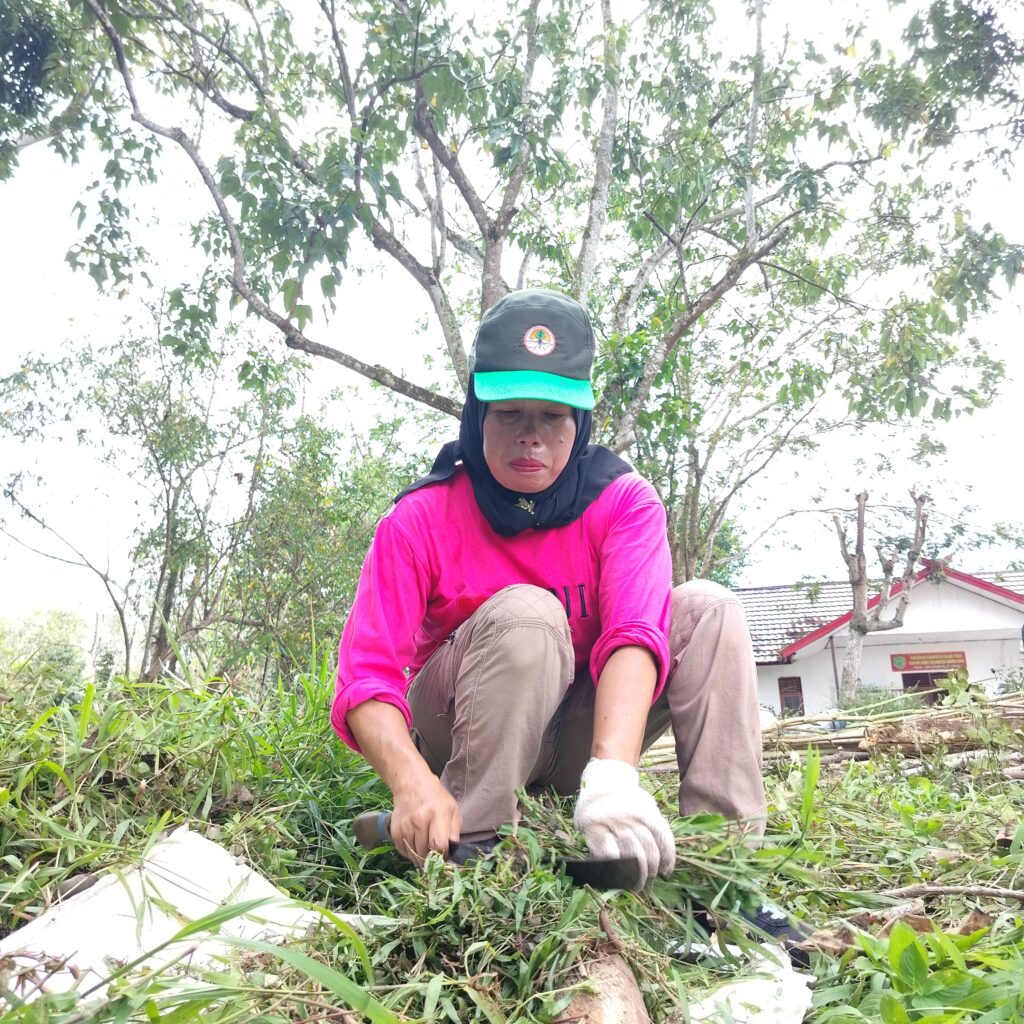In Pilang Village, Jabiren Raya District, Pulang Pisau Regency, the lives of its residents are closely related to the traditions and local wisdom of the Dayak Ngaju Indigenous Community. The village is surrounded by forests rich in natural resources, providing a life for residents who depend on agriculture, fisheries, and forest products. The Dayak Ngaju community is known for the values of mutual cooperation and helping each other, which are clearly visible in their daily activities. These traditions not only shape their perspective on the environment, but also form the basis for their social and economic life.
In an effort to empower local indigenous women, Yayasan Betang Borneo Indonesia (YBBI) has organized an entrepreneurship training program attended by 30 participants from various women's groups, including KWT members. The materials taught include natural resource management, product marketing, and business management. Through practical and discussion sessions, participants are given relevant knowledge to develop their businesses.
Mariana, one of the training participants expressed her enthusiasm in participating in this activity. Because this training opens up new experiences.
“We learned a lot about how to utilize local resources effectively,” Mariana said.
Mariana started a taro chips business. The production process begins with selecting the best raw materials from the surrounding fields. The taro is washed clean before being thinly sliced using a manual cutter. Next, the pieces of taro are soaked in salt water to remove the bitter taste, then fried in hot oil until crispy. For banana chips, she uses ripe kepok bananas. Drying and frying techniques are also applied to get crispy chips.
Mariana experimented with flavors, combining local spices to create flavor variations. Currently, her products have balado, cheese, and onion flavors, all of which have received positive responses from consumers.
After having a flagship product, marketing is the next step that must be taken. He uses social media such as Facebook and WhatsApp to introduce his chips products.
“I often share customer photos and testimonials on social media, and that helps increase sales,” Mariana said.
In addition, she also sells her products at roadside stalls and local markets, reaching a wider customer base. Mariana's taro and banana chips can be found at several distribution points, including stalls along the Trans Kalimantan road and local markets in the village. In a month, Mariana is able to sell up to 100 packs of chips, and the market response to the variety of flavors has been very positive, with many customers returning to buy.
Economic Impact and Community Support
Since starting this business, Mariana's family income has increased significantly, and has contributed to her children's education costs. Additional income from selling chips reaches 1 million rupiah per month, which she had never achieved before.
Moreover, Mariana’s business has a positive economic impact on other KWT members. They are involved in the production and marketing process, creating employment opportunities and increasing their collective income.
Support from local government and non-profit organizations such as YBBI is essential in developing local food-based businesses in this village. Women and marginalized groups empowerment programs continue to be expanded, including skills training, access to capital, and sustainable business development programs.
With her perseverance and creativity, Mariana not only managed to change her life, but also inspired other women in Pilang Village to dare to become entrepreneurs. In the spirit of local wisdom of Dayak Ngaju, she proved that village potential and community support can produce significant changes.


